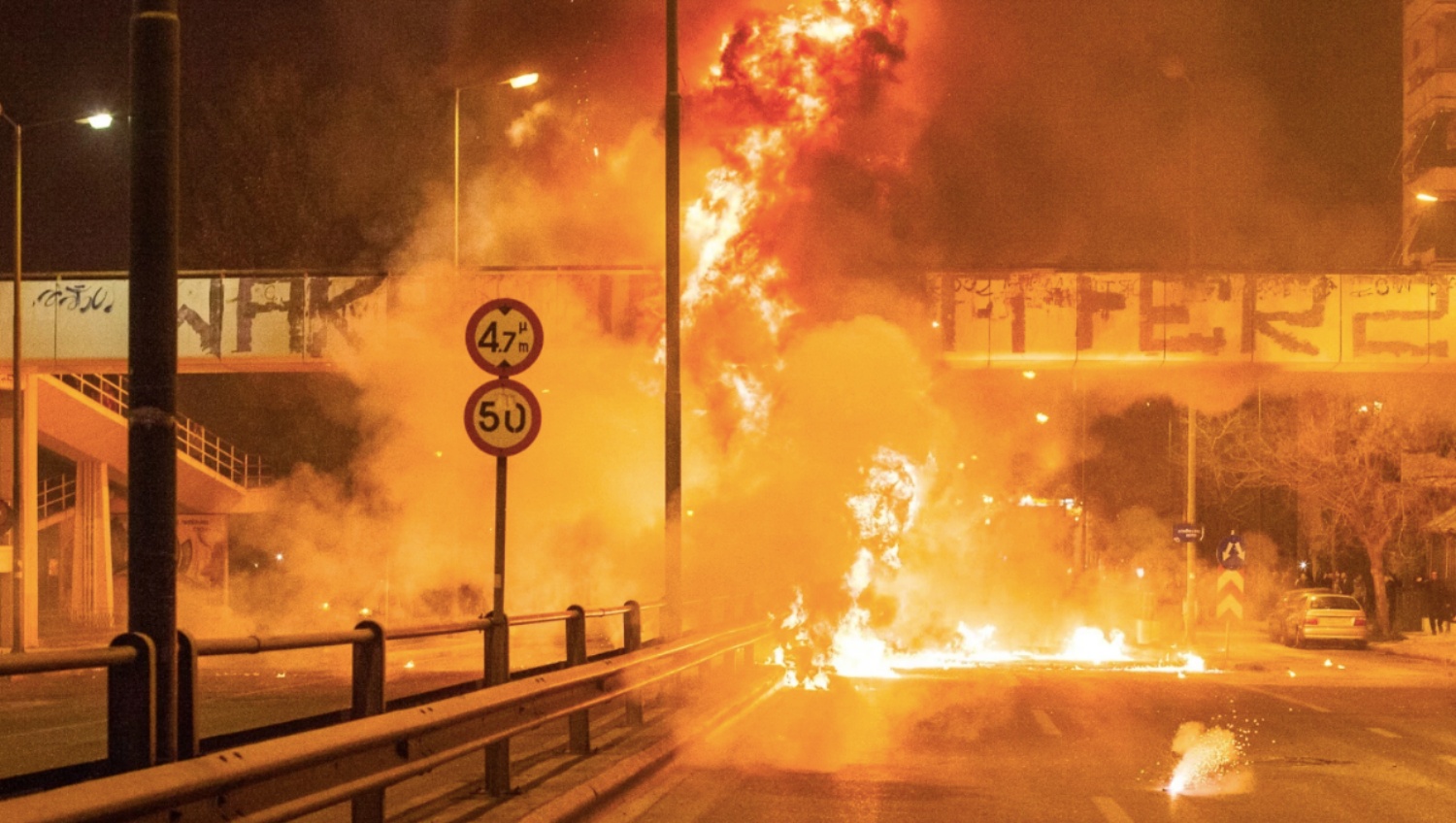Fireworks and Pipe Bombs: How Greek Towns Celebrate Easter

Credit to Author: Nafsika Mavromoustakou| Date: Fri, 19 Apr 2019 17:27:03 +0000
This article originally appeared on VICE Greece.
It’s likely you’re spending your Easter among family, chocolate, soft-boiled eggs, hard-boiled eggs, poached eggs – and you might even slip in a quiet church service. But for many people in Greece, the Easter weekend means getting out the fireworks and homemade bombs, and almost setting your town on fire in the name of tradition.
According to local police, over the past 15 years, 11 people have been killed across the country by fireworks around Easter, 58 people suffered severe mutilations and 46 people have had minor injuries. Almost half the people injured were bystanders, not taking part in the festivities. Still, this won’t stop the Greeks from spending Easter weekend blowing shit up.
As a reminder of how very different your Easter weekend could be, here is a roundup of the most dangerous fireworks-based Easter traditions from across Greece.
The rocket wars of Chios
It’s not Holy Saturday on the island of Chios without some fireworks – with adults and children buying or making their own to set off. The rocket war is an annual tradition that takes place in the town of Vrontado, between two rival parishes that live on opposite hills. After the priest announces the Resurrection of Christ, the two villages launch thousands of makeshift rockets at the bell tower of the rival church. After a spate of injuries, the city banned the tradition for a few years, but it’s now back on a much smaller scale – though it remains an impressive sight to see.
Blowing up hills in Samos
The fireworks display on Samos – a Greek island just off the Turkish mainland – is very different, though equally impressive. Thousands of artillery shells are filled with gunpowder and placed on slopes around a village. On Easter Sunday, locals fire them up. The tradition is also used as an annual celebration of Greece gaining independence from the Ottoman Empire in 1821.
Revolution reenactments in Kalamata
Every Easter in Kalamata, a city in southern Greece, locals reenact the moment in the revolution when Greece pushed back against the Turkish army using homemade IEDs to scare their horses. On the Sunday evening, two gangs of 12 on each side reenact the battle, some wearing traditional costumes.
Making your own IED is seen as a fun family ritual, starting as early as Christmastime, with children as young as six taking part to make their own smaller, more kid-friendly explosive sparklers.
The iron pipes of Andros
Every year on the island of Andros, people stick iron pipes filled with gunpowder in the ground and set them off during a procession that features the key figures of the resurrection story. Blowing things up next to a procession of people doesn’t always go over well though – there have been a number of misfirings in the past few years that have lead to injuries and things accidentally catching on fire.
Burning Judas
Judas figures are burned all across Greece – it’s just the way it’s done that differs. In Chania on the island of Crete, they build a wooden effigy of Judas and drag it around the city while people hit it.
On the Thursday before Easter in the Thrace region, kids make the Judas effigy, which they then take around town, asking people for branches from their gardens to burn it. On Good Friday, the procession of Christ stops outside a church where a fire has been built ready to consume Judas. Some cities burn their effigy the middle of the town square, while a select few like to just shoot at it.
The burning of Judas is one tradition that some groups have been trying to ban for a long time. The custom symbolises hate, while many churches are now trying to preach peace and love. It can also be a way for people to express their anti-semitism under the guise of tradition. The Holy Synod, the highest authority in the Orthodox Church, have encouraged priests several times not to take part in it. The Central Board of Jewish Communities in Greece has called for a ban, while the far-right Golden Dawn continues to support it.
The broken pots of Corfu
At midday on Holy Saturday on Corfu’s Spianada square, worshippers and tourists watch the custom of “Botides”, where locals decorate their window shutters with red flowers and throw large clay pots out of their windows. Many believe this custom goes back to the Middle Ages, when Catholics in Venice broke their old jugs on New Year in order to welcome new goods into their homes. Others believe it’s based on a medieval effort to repel evil spirits. It’s also suggested that the breaking of the clay jugs represents the earthquake that’s supposed to have followed Jesus’ crucifixion.
This article originally appeared on VICE UK.